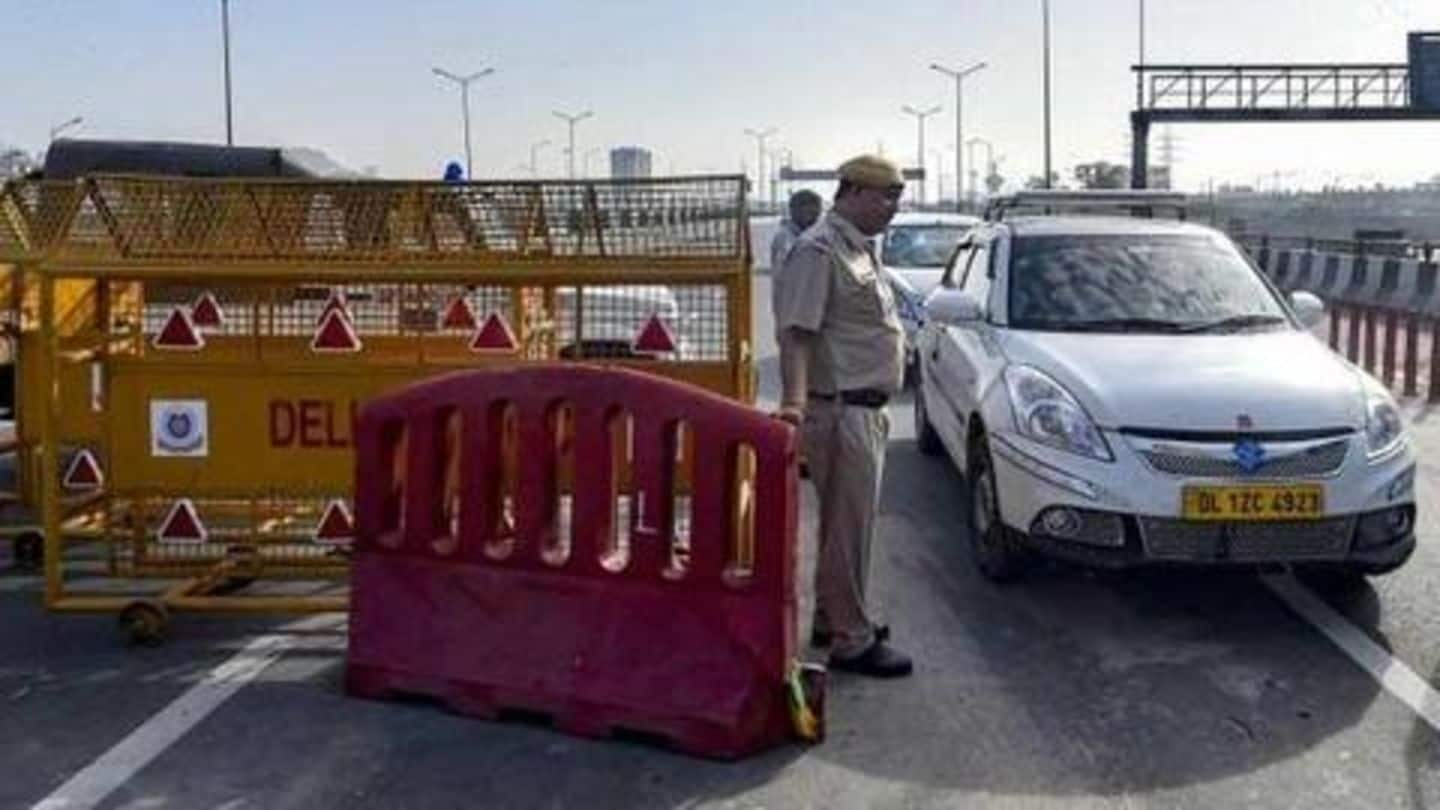
Delhi announces lockdown 4.0 guidelines; here's what will remain open
What's the story
Delhi Chief Minister Arvind Kejriwal on Monday announced the guidelines for the fourth phase of the coronavirus lockdown aka "lockdown 4.0."
Even in the fourth phase, the Delhi Metro will remain shut, along with schools, colleges, and training institutions.
The announcement comes a day after the Centre announced the extension of the nationwide lockdown till May 31 and issued guidelines for the same.
Details
Kejriwal reiterated, 'We need to learn to live with coronavirus'
Kejriwal said, "The coronavirus is not going anywhere for the next 1-2 months. Until there is a vaccine, the outbreak will not end."
He added, "As I have repeatedly said before, we need to learn to live with the virus."
He said that the lockdown cannot last permanently, adding that we need to resume economic activity. He then detailed the guidelines for Delhi.
Restrictions
What will remain restricted till May 31?
The Delhi Metro will not function during lockdown 4.0, along with all schools, colleges, training institutes.
All hotels, cinema halls, shopping malls, gyms, swimming pools, entertainment parks, theaters, parks, bars, auditoriums, and assembly halls, will remain shut.
Social, political, entertainment, academic, cultural, religious, or any other kinds of large gatherings are banned.
Religious places or places of worship will remain closed.
Restrictions
What will remain restricted till May 31?
Barbershops, spas, salons will remain closed.
There will be a night curfew from 7 pm to 7 am. People are restricted to step out of their homes during this period, except for essential services.
People aged over 65, children under the age of 10, pregnant women, persons with other illnesses such as diabetes or cardiovascular diseases, are not allowed to step outside.
General guidelines
Movement of vehicles, persons allowed; government/private offices to reopen
The movement of vehicles and individuals is allowed across Delhi. Four-wheelers shall have no more than two passengers while pillion riders on two-wheelers are not allowed.
All government and private offices will be allowed to open. However, private offices have been advised to allow employees to work from home as much as possible.
Only essential services are allowed in containment zones.
Transport
Auto rickshaws, taxis, gramin seva, etc., allowed
Auto rickshaws, e-rickshaws, cycle rickshaws are allowed with only one passenger.
Taxis and cabs are allowed with only two passengers. Maxi cabs are allowed up to five passengers and RTVs are allowed up to 11 passengers.
Gramin Seva/Phat-Phat Seva will be allowed with only two passengers.
After a passenger deboards, the driver must disinfect the area where they were seated.
Information
Buses allowed with 20 passengers
Carpooling/car sharing is not allowed. Buses will be allowed with no more than 20 passengers, who will be thermal-screened before boarding the vehicle. Social distancing must be maintained inside the vehicle and at bus stops.
What's allowed
Markets to open on odd-even basis
Markets are allowed to open on an odd-even basis. Shops selling essential items are allowed to open every day.
Standalone shops/neighborhood shops/shops in residential complexes will be allowed to open.
Shopkeepers must ensure social distancing. If this is violated, the shop will be shut.
Restaurants are allowed for home delivery only.
Sports complexes and stadiums will be open, but spectators will not be allowed.
Information
Only 50 guests allowed for weddings; 20 for funerals
For weddings, only up to 50 guests will be allowed provided social distancing norms are followed. Only up to 20 guests are allowed for funerals. Masks must be worn at all places, Kejriwal said, advising people to frequently wash their hands and maintain social distancing.
Other details
Industries to reopen; construction activities allowed
All industries will be opened with staggered timings. Construction activities are to be resumed, but trans-border workers are not allowed.
The inter-state movement of doctors, nurses, paramedical staff, sanitation personnel, and ambulances will be allowed.
Goods and cargo trucks will also be allowed to pass through inter-state border checks, even if they are empty.